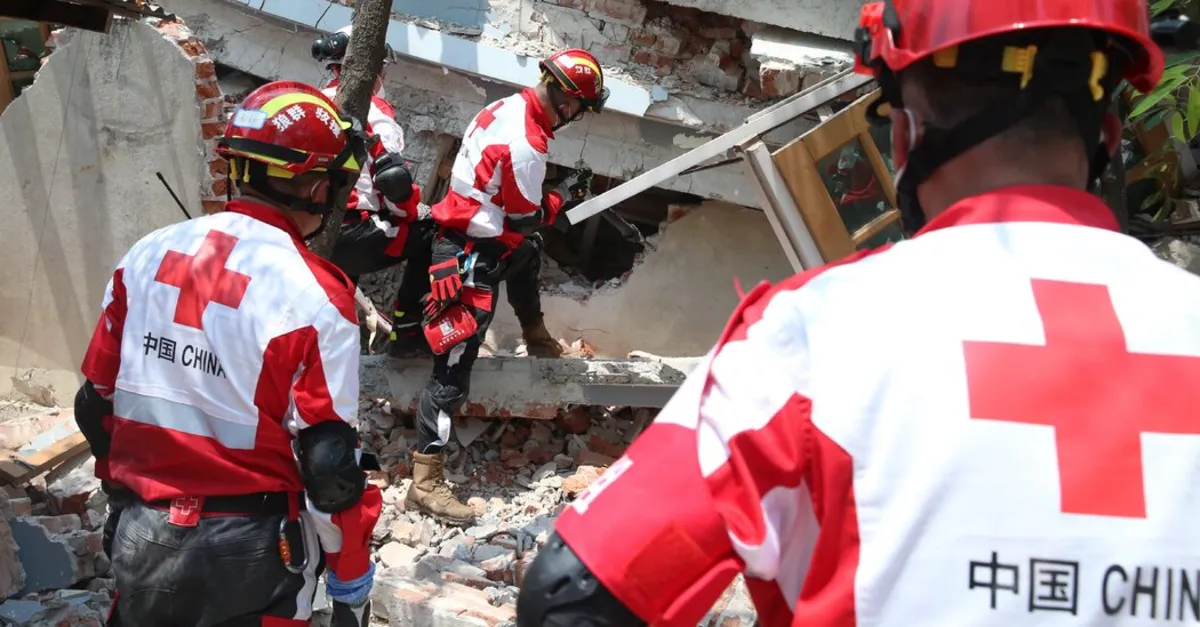
In a shocking incident that underscores the perilous conditions for humanitarian efforts in Myanmar, the military recently fired upon a Chinese Red Cross convoy attempting to deliver essential food and medicine to survivors of a devastating earthquake. This alarming event highlights the significant dangers that aid organizations face while working in conflict-ridden areas of the country.
On Wednesday, the military reported that its forces opened fire on vehicles carrying much-needed relief supplies in the war-torn northern Shan State. The military justified the attack by claiming that the convoy failed to notify them of its presence in advance, raising questions about communication protocols in areas affected by conflict.
The situation has been exacerbated by recent natural disasters. A powerful 7.7-magnitude earthquake struck on Friday, claiming at least 2,700 lives and leaving millions without access to basic necessities such as food and clean water. In the aftermath, various armed rebel groups reported that the military conducted numerous airstrikes, which have resulted in further civilian casualties.
Despite an announcement from the shadow government in exile, known as the National Unity Government, along with an alliance of three rebel groups declaring cease-fires following the earthquake, the military, which has held power since a coup four years ago, has made it clear that it will not suspend its military operations. Senior General Min Aung Hlaing, the chief of Myanmar’s junta, stated in a recent declaration that military actions would continue as “necessary protective measures,” indicating a grim outlook for peace in the region.
The ongoing civil war in Myanmar has already inflicted widespread suffering on its populace, and the recent earthquake has only intensified the crisis. With millions of people now facing dire circumstances, the need for humanitarian aid is more critical than ever. However, the combination of military aggression and natural disasters poses significant challenges for aid organizations striving to provide relief.
As the situation unfolds, it remains to be seen how both the military and humanitarian groups will navigate this precarious landscape, where the need for aid is urgent yet fraught with danger.